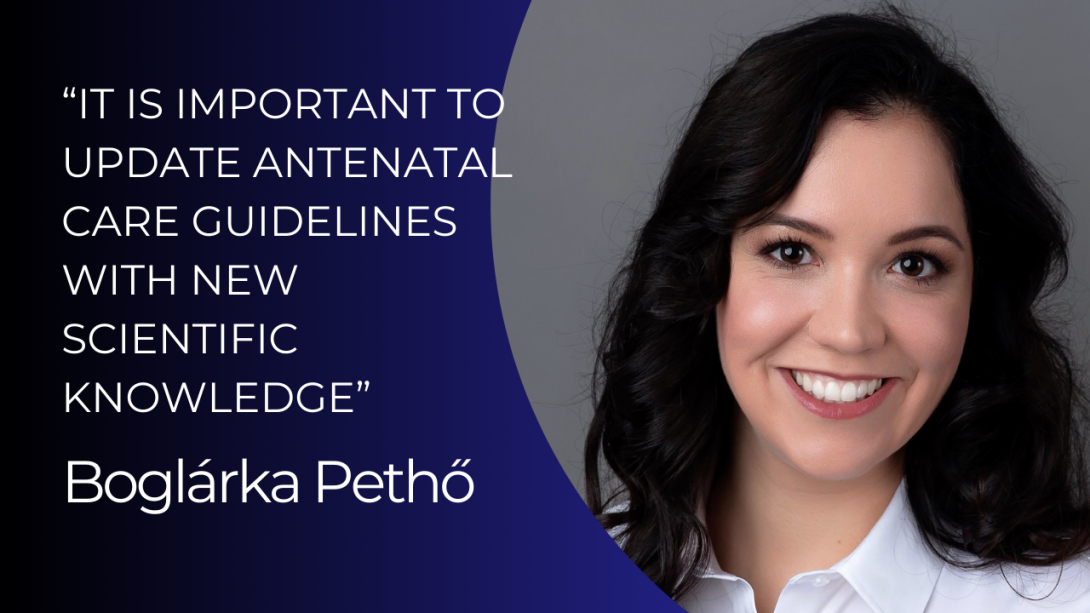
She has two research topics, both investigating the effect of maternal age on non-chromosomal congenital anomalies. She published a first-authored paper on this topic last year, and the second was recently published in the American Journal of Obstetrics & Gynecology, the second most important journal out of 150 obstetrics and gynecology journals worldwide. In May, Dr. Boglárka Pethő was named the Student of the Month (Year 2-3) at the Centre for Translational Medicine.
Dr. Pethő had already been working as a clinician at the Department of Obstetrics and Gynecology at Semmelweis University for several years when she started her Ph.D. training. She joined the Centre for Translational Medicine program at its launch, as soon as it moved from Pécs to Budapest. “I felt that the system of the CTM could greatly assist us not only in obtaining a scientific degree and publishing our own research results, but also in general to gain a good perspective. I felt that this training could provide practical knowledge to have a better understanding of the scientific world, and to be able to evaluate the scientific results that researchers already have. During the training, I learned critical thinking, and how to check whether information is reliable or not. The training also helped me to improve my presentation skills.”
Dr. Pethő has made excellent progress with her academic work, she has already passed the complex exam and only has to finish her doctoral dissertation. Her Ph.D. defense is scheduled for this autumn. She already has two first-authored articles. One was published a year ago in the British Journal of Obstetrics and Gynaecology, and the second was recently published in the American Journal of Obstetrics & Gynecology, the second most important journal out of 150 obstetrics and gynecology journals worldwide. Dr. Pethő is keen to continue her research after obtaining her degree, as she considers this activity essential to medical work.
“In my Ph.D. thesis, I have two research topics. Approaching from different perspectives, but both examine the effect of maternal age on non-chromosomal congenital anomalies. This topic is very important because nowadays women are giving birth at an older age, which can lead to many difficulties. Therefore, education is crucial. As having children later in life has many psychological, social, and societal co-factors, doctors and researchers should not aim to reverse this process, but we should strive to respond to new trends. We can do this by evaluating the risk factors of having children later in life. After that, we can inform patients, based on the scientific evidence, about what extra screening tests they could have, and what they should pay more attention to.” In addition to education, it is important to update antenatal care guidelines with new scientific knowledge. This is needed because there is currently no maternal age-based recommendation for screening non-chromosomal developmental anomalies. Specific recommendations are only made for disorders based on chromosomal abnormalities, such as Down's syndrome, for which the association with maternal age has long been well identified.
Dr. Pethő's research also highlighted that having children at a very young age, under twenty, also increases the risk of non-chromosomal congenital anomalies. In this case, it is not the age itself that increases the risk, but the lifestyle typically associated with it. For example, very young mothers are typically unprepared for pregnancy, so they may not be taking adequate folic acid and folate supplements, or they may use drugs that could harm the baby. In addition, women who have children before they reach the age of 20 typically have a lower socioeconomic status, which also increases the risk of non-chromosomal developmental anomalies. For this reason, this age group needs special attention during antenatal care.
(Szabó Emese)